
Top Universities in Australia to Study Civil Engineering
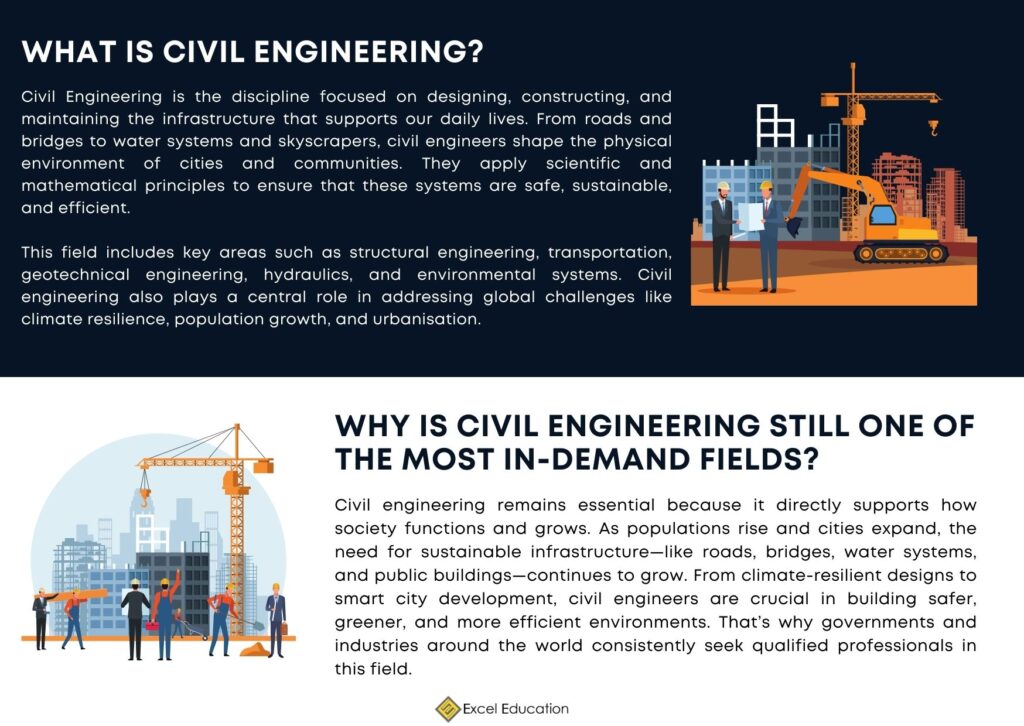
Civil engineering is at the heart of modern society responsible for designing structures and systems that keep cities running and communities connected. From bridges and highways to sustainable water systems and smart urban planning, civil engineers play a critical role in building the infrastructure of the future. For students eager to make a lasting impact on the built environment, studying civil engineering in Australia opens the door to both global knowledge and practical experience.
Australia’s leading universities offer civil engineering programs that combine deep technical knowledge with real-world application. Students explore areas like structural design, geotechnical engineering, transport systems, and environmental planning, supported by industry-integrated projects, cutting-edge laboratories, and work placements with engineering firms and government bodies.
What sets Australia apart is its strong focus on sustainability, innovation, and future-ready infrastructure. With accredited programs, world-class faculty, and access to growing urban developments, students graduate not only with engineering expertise, but with the vision and skills to help shape more resilient, efficient, and liveable cities.
In this guide, we explore the Top Universities in Australia to Study Civil Engineering, selected based on academic strength, research impact, and rankings in the QS World University Rankings by Subject 2025 in Civil and Structural. If you’re ready to design the world around you, this is where your civil engineering journey begins.
Career Options for Civil Engineer Graduates

According to SEEK.COM, the average annual salary for Civil Engineering Jobs in Australia ranges between $95000 to $115000 in 2025.
As a civil engineer, you’ll play a major role in designing, building, and maintaining the infrastructure that keeps cities running. Below are some examples of various exciting career paths you can explore.
Structural Engineer
• Designs and analyses buildings, bridges, and large structures
• Ensures safety, stability, and regulatory compliance
Geotechnical Engineer
• Examines soil and foundation conditions
• Supports design of tunnels, roads, and retaining walls
Water Resource Engineer
• Develops water systems, drainage, and flood controls
• Focuses on sustainable water use and infrastructure
Urban/Transport Planner
• Plans city layouts and public transport systems
• Improves urban mobility and liveability
Environmental Engineer
• Integrates sustainability into infrastructure projects
• Works on pollution control and resource efficiency
Site Engineer
• Oversees daily construction site operations
• Ensures safety, quality, and on-time delivery
Construction Project Manager
• Leads project planning, budgeting, and team coordination
• Delivers infrastructure projects from start to finish
Infrastructure Engineer (Public Sector)
• Designs and maintains roads, bridges, and public facilities
• Often works within government or municipal projects
Migration Opportunities through Civil Engineering in Australia

The Medium and Long-term Strategic Skills List (MLTSSL) is an official list published by the Australian Government that includes occupations in high demand across the country. The skills list changes from time to time so at the time of completing your degree you should always visit the official government website to check if your program is listed and discuss with a migration lawyer to consider other visa options.
Civil engineering is one of the most in-demand occupations in Australia and is consistently listed on the Medium and Long-term Strategic Skills List (MLTSSL), which means it offers strong pathways for permanent residency in Australia.
The pathway to migration for a typical international student completing a Civil Engineering program is highlighted below.
Step 1: Get Your Skills Assessed by Engineers Australia (EA)
If you’re an engineering graduate planning to migrate to Australia, getting your skills assessed by Engineers Australia (EA) is one of the most important steps in your migration journey.
It proves you are qualified to work as an Engineer in Australia. A skills assessment confirms that your qualifications, practical training and english skills meet the Australian standard for your engineering occupation. This shows employers and the government that you’re job-ready
To apply for the temporary graduate visa and other skilled migration, you’ll need a positive skills assessment from Engineers Australia.
Step 2: Apply for a Temporary Graduate Visa (Subclass 485)
After completing a recognised engineering degree in Australia, you can apply for a Temporary Graduate visa, which allows you to:
- Stay and work in Australia for 2 to 4 years
- Gain local work experience in civil engineering
- Boost your points and chances for PR
Step 3: Consider Working in Regional Area of Australia
States like South Australia, Tasmania, or Western Australia often have strong demand for civil engineers. Studying or working in regional Australia (outside major cities like Sydney, Melbourne, Brisbane) may offers:
- Extra migration points
- Access to regional nominations under visa 491
- Possibly longer stay periods on graduate visas
Step 4: Explore Employer Sponsorships
If you secure a full-time job after graduation, your employer may be eligible to sponsor you for:
- Subclass 482 – Temporary Skill Shortage visa
- Subclass 186 – Employer Nomination Scheme (Permanent Residency pathway)
This is a great route if your employer values your skills and wants to keep you long-term. This could also be a viable option instead of applying for the skilled migration visa.
Step 5: Apply for Skilled Migration Visa
Check if the occupation ‘Civil Engineer’ is on Australia’s Medium and Long-term Strategic Skills List (MLTSSL). Being on the MLTSSL gives you more visa options and PR pathways and graduates are eligible to apply for key skilled migration visas, including:
- Subclass 189 – Skilled Independent Visa
(No sponsorship required) - Subclass 190 – Skilled Nominated Visa
(State government sponsorship) - Subclass 491 – Skilled Work Regional (Provisional) Visa
(Regional area nomination)
Top Recommended University to Study Civil Engineering in Australia
Civil Engineering is responsible for designing the physical framework of our cities and communities. From transportation systems and water infrastructure to sustainable buildings and urban planning, civil engineers lay the foundation for a more connected and resilient world.
Australia is home to globally recognised universities that offer accredited civil engineering programs, advanced facilities, and strong industry partnerships. These institutions not only deliver academic excellence but also provide hands-on training through internships, design studios, and large-scale infrastructure projects.
In this guide, we showcase the top recommended universities in Australia for studying civil engineering, based on factors such as academic reputation, graduate employability, industry integration, and the latest QS World University Rankings by Subject 2025 in Civil and Structural. Discover the institutions shaping tomorrow’s infrastructure leaders starting with your own journey today.
The University of New South Wales (UNSW Sydney)
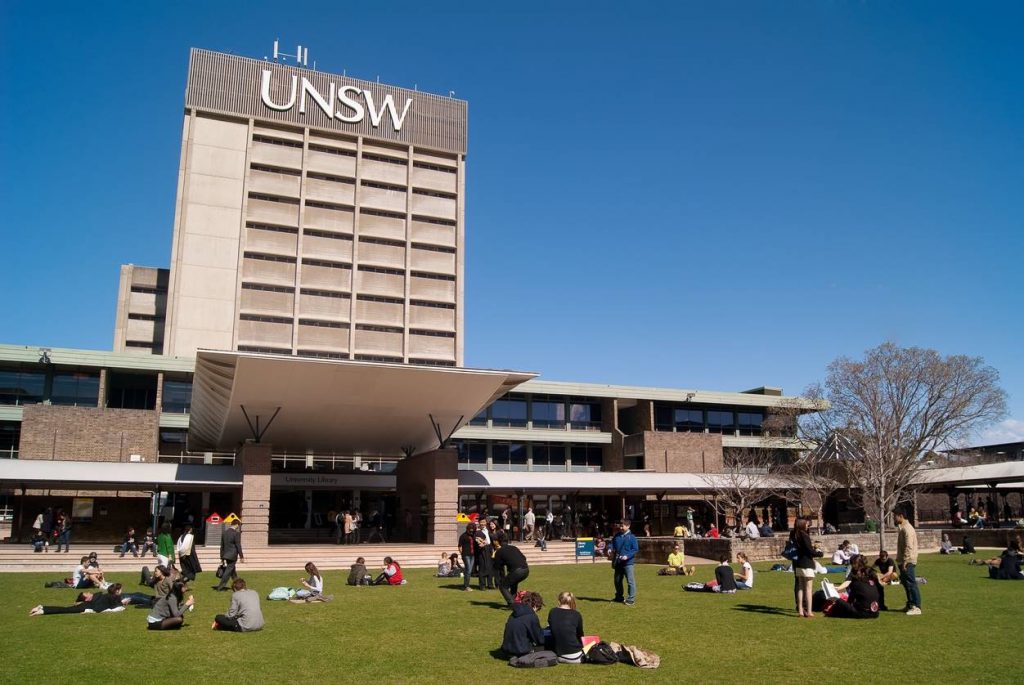
Ranked #1 in Australia and #24 globally for Civil and Structural Engineering (QS World University Rankings by Subject 2025), UNSW Sydney is a world leader in civil engineering education and research. The program equips students with the skills to plan, design, and manage infrastructure that supports modern cities ranging from transport networks and water systems to high-rise buildings and sustainable developments.
What sets UNSW apart is its blend of academic rigour and strong industry integration. Students benefit from access to state-of-the-art laboratories, fieldwork opportunities, and real-world projects through UNSW’s extensive industry partnerships. The curriculum also focuses heavily on innovation and sustainability, preparing students to solve today’s infrastructure challenges with future-ready solutions.
Through initiatives like the ChallENG Program, students work alongside professional engineers and global companies on real design problems, developing not only technical expertise but also teamwork and leadership skills. Graduates leave UNSW highly employable and globally competitive.
QS Rankings by Subject in 2025 | #1 in Australia, #24 in the World |
Program | Bachelor of Engineering in Civil Engineering (Honours) |
Intake | February, May, September |
Fees (indicative in 2025) | AUD$58,500 per-year |
Duration | 4 years |
For more information on the table presented above, contact us now!
The University of Melbourne
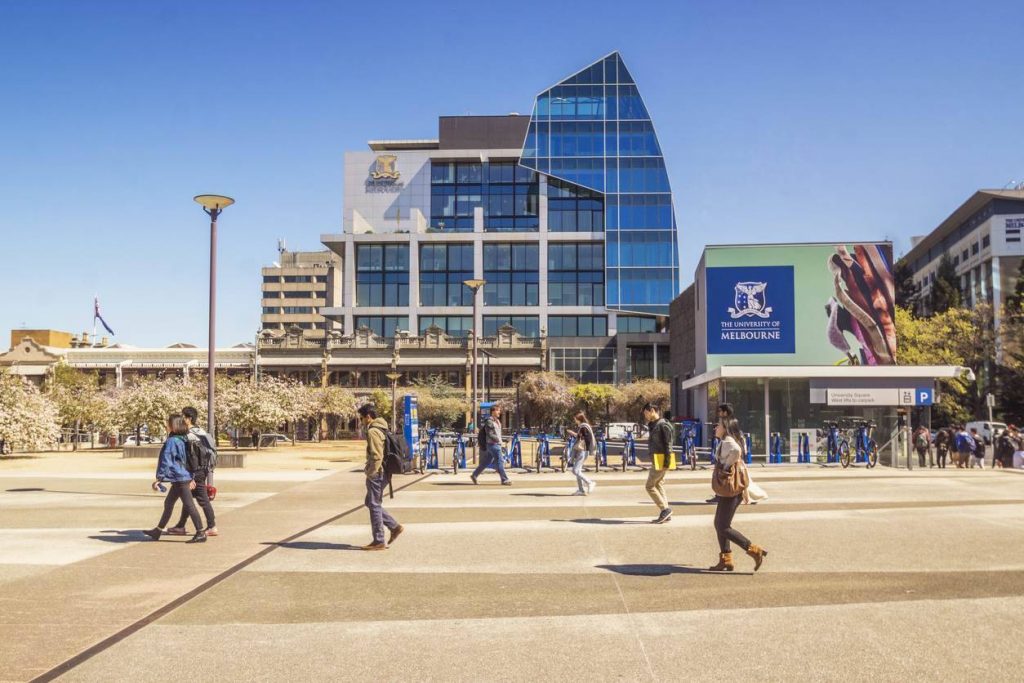
The University of Melbourne is one of Australia’s most prestigious and globally ranked institutions, renowned for its academic excellence, research leadership, and strong industry engagement. Located in the vibrant city of Melbourne which is home to major infrastructure projects and engineering innovation. The university offers an ideal environment for students pursuing civil engineering.
The Civil Engineering program equips students with the expertise to design, construct, and manage infrastructure systems that shape modern society. From transport networks and building foundations to water management and environmental planning, the curriculum blends technical depth with sustainability and innovation. Students also gain essential skills in project management, communication, and digital engineering tools.
What distinguishes Melbourne’s approach is its integration of hands-on learning with research-led teaching. Students benefit from access to cutting-edge engineering facilities, strong industry partnerships, and the opportunity to engage in major infrastructure and sustainability-focused projects. With internship opportunities and a focus on real-world application, graduates are prepared to become future-ready civil engineers enabling students to tackle global infrastructure challenges with confidence and creativity.
|
QS Rankings by Subject in 2025 |
#3 in Australia, #31 in the World |
|
Program |
The Bachelor of Science major in Civil Engineering Systems Combining with: Master of Civil Engineering |
|
Intake |
March, July |
|
Fees (indicative in 2025) |
Bachelor: $ 49,188 – $57,928 per-year Master:$57,984 per-year |
|
Duration |
5 Years (Bachelor: 3 years + Master: 2 years) |
For more information on the table presented above, contact us now!
RMIT University

RMIT University is a global leader in practical and industry-aligned education, especially in the field of engineering. Based in Melbourne which is one of Australia’s fastest-growing cities with a strong focus on infrastructure and sustainability, RMIT offers students a learning environment that mirrors the demands of the modern civil engineering profession. With a strong international presence and deep connections to government and industry, RMIT prepares students to contribute meaningfully to the design and development of our built environment.
RMIT’s Civil Engineering program offers a hands-on and future-ready approach to infrastructure design and development. Students explore areas such as structural design, transportation systems, geotechnical engineering, water resource management, and sustainability. The curriculum is delivered through studio-based learning, site visits, and engineering labs that reflect actual industry practices.
What sets RMIT apart is its emphasis on practical experience and professional engagement. From day one, students work on real-world projects, collaborate in multidisciplinary teams, and take part in industry placements and mentorship programs. With access to cutting-edge technologies and strong ties to construction, consulting, and government sectors, graduates are equipped with the technical skills and confidence to build cities, improve public infrastructure, and contribute to sustainable development.
|
QS Rankings by Subject in 2025 |
#5 in Australia, #51-100 in the World |
|
Program |
Bachelor of Engineering in Civil and Infrastructure (Honours) |
|
Intake |
February, July |
|
Fees (indicative in 2025) |
AUD$45,120 per-year |
|
Duration |
4 years |
For more information on the table presented above, contact us now!
University of Technology Sydney (UTS)
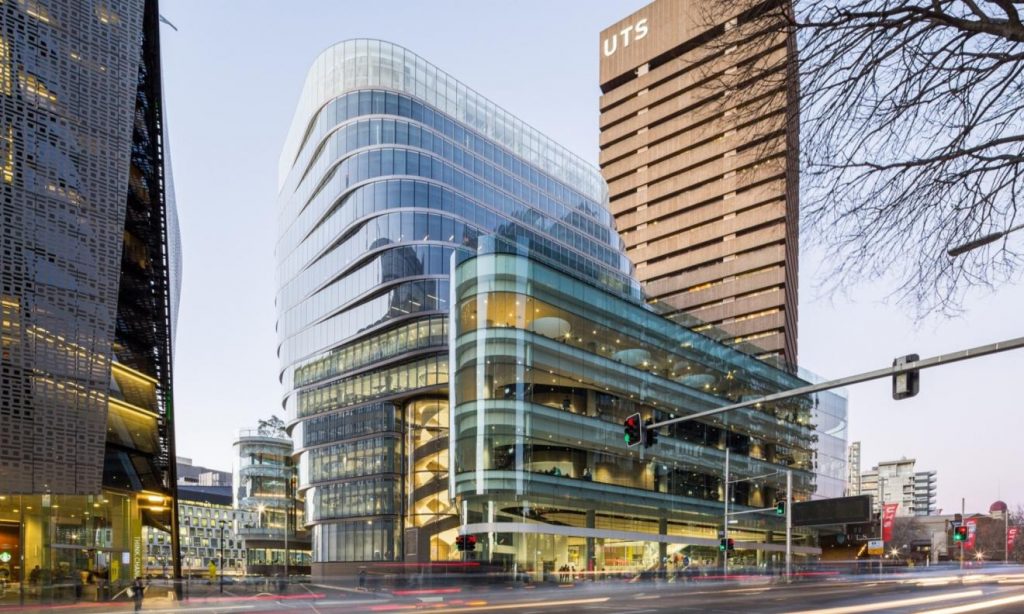
The University of Technology Sydney (UTS) stands out for its practical approach to learning and strong ties to Sydney’s dynamic infrastructure and construction sectors. Situated in the heart of the city, UTS offers a unique advantage for civil engineering students by providing close proximity to real-world projects, engineering firms, and urban development initiatives.
UTS’s Civil Engineering program focuses on equipping students with the technical and professional skills needed to design and manage the complex infrastructure of modern cities. The course spans structural design, geotechnical engineering, transport planning, and water systems, with sustainability embedded throughout. Students engage in project-based learning, industry simulations, and collaborative studio environments that reflect real engineering workflows.
What makes UTS particularly appealing is its integration of study with work experience. Through internship programs, guest lectures from practising engineers, and access to multidisciplinary research centres, students graduate with both the confidence and capability to lead infrastructure development in Australia and beyond.
|
QS Rankings by Subject in 2025 |
#8 in Australia, #51-100 in the World |
|
Program |
Bachelor of Engineering (Honours) (Civil) |
|
Intake |
February, July |
|
Fees (indicative in 2025) |
AUD$52,410 per-year |
|
Duration |
4 years |
For more information on the table presented above, contact us now!
Curtin University
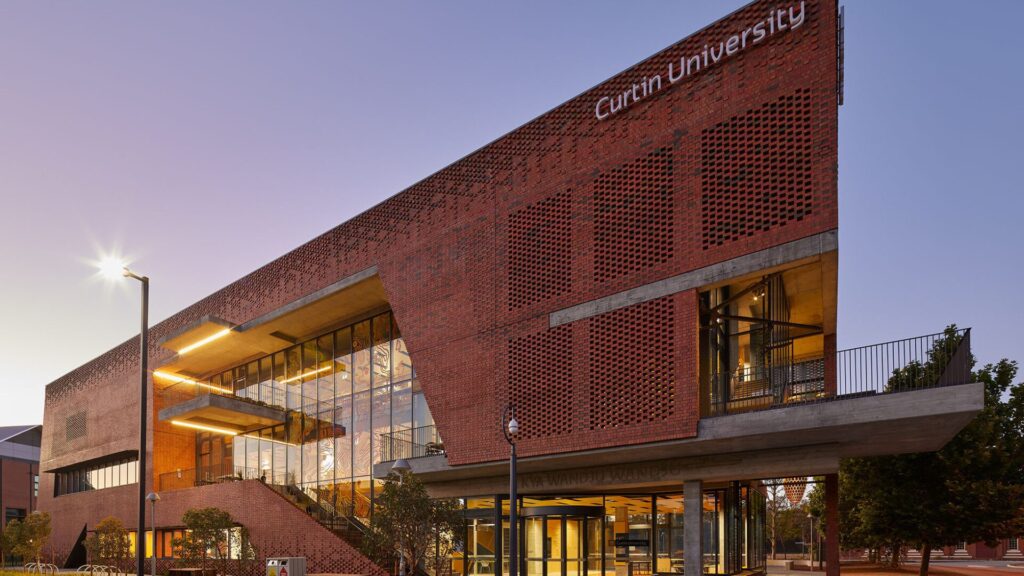
Curtin University, located in Perth, Western Australia, is renowned for its practical, industry-connected approach to education. Ranked among the top 1% of universities worldwide , Curtin offers a dynamic learning environment that combines academic excellence with real-world experience. Its proximity to major infrastructure and mining projects provides civil engineering students with unique opportunities to engage directly with industry.
The Bachelor of Engineering (Honours) in Civil and Construction Engineering at Curtin equips students with the skills to design, construct, and manage infrastructure projects such as bridges, roads, and water systems. The curriculum covers key areas including structural analysis, geotechnical engineering, transportation systems, and environmental planning. Students also undertake a significant research project in their final year, integrating their knowledge into practical solutions .
Curtin’s strong industry partnerships enhance the learning experience. Through programs like the Industry Exchange, students collaborate with companies such as BHP, Chevron, and Clough on real-world projects, gaining valuable insights and professional connections . Additionally, the program includes at least 12 weeks of professional engineering practice, ensuring graduates are well-prepared for the workforce.
Accredited by Engineers Australia and recognized internationally, Curtin’s civil engineering program prepares students for diverse careers in construction, consulting, government, and beyond. With a focus on sustainability and innovation, graduates are equipped to address the infrastructure challenges of the future.
|
QS Rankings by Subject in 2025 |
#9 in Australia, #101-150 in the World |
|
Program |
Bachelor of Engineering (Honours) (Civil and Construction Engineering) |
|
Intake |
February, July |
|
Fees (indicative in 2025) |
AUD$37,507 per-year |
|
Duration |
4 years |
For more information on the table presented above, contact us now!
Contact us to find out more!
Our consultation service centres are located in various locations in Asia and Oceania including Australia, China, Malaysia, Indonesia, Philippines, Vietnam, Fiji and many more. However, if you have a direct enquiry, you can contact us through:
Call/ WhatsApp: +60162206607
Email: [email protected]
About The Author

Hannah Hir
Hannah appreciates various art forms, especially Asian literature, film and music. Most of her favorite Malaysian kuihs are green-coloured.

